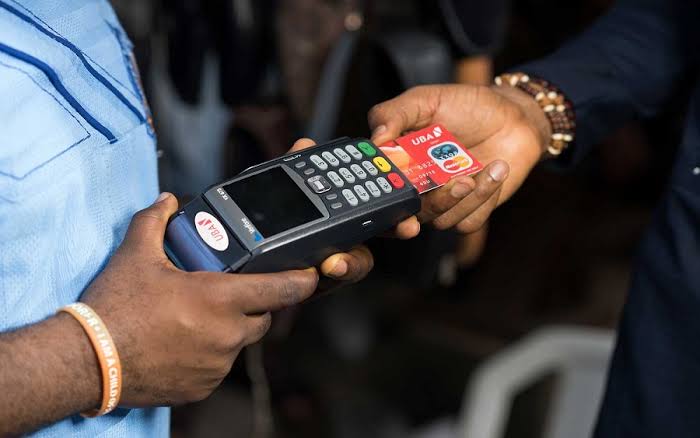Physical Address
60 Ekwema Cres, Layout 460281, Imo
Physical Address
60 Ekwema Cres, Layout 460281, Imo

POS Terminals For Cab Drivers In Nigeria: Nigerian cab drivers have recently gained access to Point of Sale (POS) terminals, a significant development that promises to enhance their payment options.
This initiative, driven by fintech startup PayZeep in collaboration with the Amalgamated Union of App-based Transporters of Nigeria (AUATON), allows cab drivers to directly receive payments from passengers, bypassing the traditional in-app payment systems used by ride-hailing platforms like Uber and Bolt.
The introduction of POS terminals for cab drivers in Nigeria aims to provide more control over earnings and potentially increase profits for drivers.
For years, Nigerian ride-hailing drivers have voiced concerns regarding high commission fees imposed by ride-hailing companies and issues related to fraudulent transfers.
These challenges have often left drivers feeling vulnerable and under-compensated. By utilizing POS terminals, cab drivers can now manage transactions more effectively, ensuring that they receive the full fare directly from passengers.
This shift marks a notable change in the landscape of ride-hailing services in Nigeria. With the ability to process payments through handheld devices, drivers can sidestep the financial burdens associated with app-based payment systems.
This innovation not only empowers drivers but also enhances their earning potential, as they can avoid hefty commissions that typically reduce their take-home pay.

The rollout of this initiative is set to begin with a one-month pilot program. During this period, drivers are required to complete a minimum of ten rides per day to qualify for the POS terminals.
While this target has raised some eyebrows among drivers—many of whom are concerned about the feasibility of meeting such demands—PayZeep asserts that this condition is vital for assessing the program’s sustainability.
Additionally, drivers will need to cover the costs associated with acquiring the POS devices. This financial commitment has led to mixed reactions within the driver community.
Some view it as a necessary investment for long-term benefits, while others worry about the upfront costs and daily ride quotas.
The introduction of POS terminals for cab drivers in Nigeria is expected to have a profound impact on their earnings. By eliminating third-party payment processing, drivers can retain more of their fares.
This change may lead to increased job satisfaction and financial stability among drivers, who often face unpredictable income due to fluctuating demand and high operating costs.
Moreover, this initiative could serve as a catalyst for broader changes within the ride-hailing industry.
If successful, it may prompt other fintech companies to explore similar partnerships with transportation unions or even lead existing ride-hailing platforms to reconsider their commission structures.
Read Next: POS Transactions in Nigeria Rise to N1 Trillion
As this new payment solution gains traction, questions arise about how major players like Uber and Bolt will respond.
Historically, these companies have maintained strict control over payment processes, which has been a point of contention among drivers.
The emergence of cab drivers using POS in Nigeria could challenge their traditional business models and compel them to adapt in order to retain driver loyalty.
Industry analysts speculate that Uber and Bolt may need to rethink their commission strategies or introduce alternative payment solutions that align more closely with driver interests.
The competitive landscape is evolving, and companies that fail to adapt risk losing market share as drivers seek more favorable working conditions.
The partnership between PayZeep and AUATON represents a pivotal moment for Nigerian cab drivers.
With access to POS terminals, they are poised to gain greater control over their earnings while navigating an increasingly complex ride-hailing environment.
As this pilot program unfolds, it will be crucial to monitor its impact on driver satisfaction, earnings potential, and the overall dynamics of the ride-hailing industry in Nigeria.
The success of this initiative could set a precedent for similar developments across Africa, empowering transport workers and reshaping payment systems in the gig economy.
As stakeholders watch closely, the future of ride-hailing in Nigeria hangs in the balance, driven by innovation and the quest for fair compensation.
Was this information useful? Drop a nice comment below. You can also check out other useful contents by following us on X/Twitter @siliconafritech, Instagram @Siliconafricatech, or Facebook @SiliconAfrica.